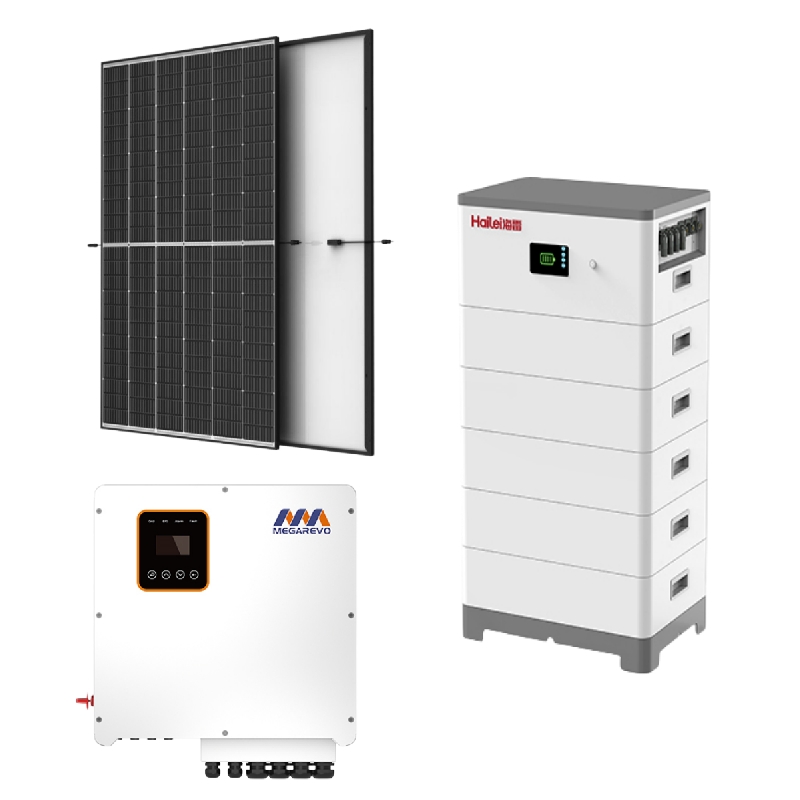-
 FAST SHIPPING
FAST SHIPPING
-
 COMPETITIVE PRICE
COMPETITIVE PRICE
-
 EXCELLENT AFTER-SERVICE
EXCELLENT AFTER-SERVICE
Solar Panel to Accumulator Ratio: Size PV and Batteries Right
Jan 23,2026How Many Solar Panels to Run an Air Conditioner? Sizing Guide
Jan 16,2026Illinois Solar Power Incentives: RECs, Rebates & Net Metering (2026)
Jan 09,2026Ohio Solar Energy Incentives (2026): Net Metering, Tax Rules
Jan 02,2026Disadvantages of Passive Solar Energy: Practical Limits & Fixes
Dec 26,2025As more homeowners seek sustainable energy solutions, Residential Photovoltaic Kits have emerged as a smart investment for reducing electricity costs and increasing energy independence. These kits, designed to harness solar power, store excess energy, and provide continuous electricity, are an excellent way to ensure a reliable energy supply while benefiting the environment. However, understanding how to optimize energy storage and management is key to getting the most out of these systems. In this article, we’ll explore the advanced aspects of energy storage and management within residential photovoltaic systems and how you can maximize their potential for your home.
Battery Life Cycle and Energy Efficiency
One of the key components of any Residential Photovoltaic Kit is its battery storage system, typically powered by advanced lithium-ion technology. The efficiency of these batteries directly impacts the overall performance and cost-effectiveness of the system. Over time, these batteries will experience a reduction in capacity, so it's important to understand their life cycle. Typically, lithium-ion batteries used in solar storage systems last between 10 to 15 years, depending on usage and environmental factors.
Proper maintenance and monitoring can help prolong the life of the batteries, ensuring they continue to store and release energy effectively. A well-maintained battery storage system will reduce the frequency of grid reliance and maximize the energy available for your home, even during times when sunlight is scarce.
Optimizing Energy Consumption with Intelligent Load Management
Residential Photovoltaic Kits are not just about generating energy; they’re about smart energy management. Intelligent load management systems are crucial for optimizing energy consumption, ensuring that power is distributed efficiently throughout the home. These systems prioritize critical loads—like heating, cooling, or medical devices—while temporarily reducing non-essential usage during peak energy demand times.
Many modern inverters integrated with photovoltaic kits come with advanced algorithms that allow them to adjust the energy flow based on real-time consumption patterns. This means that, during the day when solar energy production is high, excess energy can be stored in the batteries. Conversely, during the night or cloudy days when solar power is not available, the system will draw from the stored energy, reducing reliance on the grid.
Maximizing Energy Efficiency through Monitoring Systems
With energy prices on the rise, being able to track and analyze energy usage is more important than ever. Residential photovoltaic systems often come equipped with sophisticated monitoring software that provides real-time data on energy production, consumption, and storage. These systems give homeowners an intuitive overview of their energy use and even provide predictive analytics to forecast future needs.
This data is invaluable for users looking to fine-tune their energy consumption patterns and optimize the use of their Residential Photovoltaic Kits. The ability to make adjustments based on these insights ensures that the system operates at maximum efficiency, ultimately leading to cost savings and enhanced sustainability.

Reducing Costs and Boosting Energy Independence
By efficiently managing energy storage and consumption, Residential Photovoltaic Kits can significantly reduce electricity bills. The stored energy can be used to power your home during peak demand times, reducing the need to purchase expensive electricity from the grid. And when your energy storage is fully charged, excess energy can be exported to the grid, potentially generating income through feed-in tariffs or other incentive programs.
Energy independence is another major benefit of Residential Photovoltaic Kits. With the right energy storage system in place, homeowners can effectively disconnect from the grid for long periods, using only the solar power they’ve generated and stored. This not only contributes to personal savings but also aligns with broader goals of sustainability and reducing carbon footprints.
The Future of Residential Solar Storage: Looking Ahead
As technology advances, we expect further improvements in both photovoltaic systems and energy storage. New developments in battery technology promise even greater efficiency, longer lifespans, and faster charging times. Additionally, integrating smart home automation with Residential Photovoltaic Kits could further enhance energy management, allowing homeowners to control and optimize their energy usage with greater precision.
In the near future, we may see even more sophisticated systems capable of learning energy consumption patterns and making autonomous adjustments to optimize solar energy storage and usage, all while contributing to reducing household emissions.
Conclusion
Optimizing energy storage and management in your Residential Photovoltaic Kit not only enhances your energy efficiency but also increases your overall savings and contributes to a more sustainable future. By focusing on intelligent load management, battery longevity, and advanced monitoring systems, homeowners can ensure they’re getting the maximum value from their solar investment. As technology continues to evolve, the future of residential solar energy looks even brighter, making now the perfect time to invest in photovoltaic solutions for your home.
←
Why MPPT and PWM Controllers Matter in Folding Solar Panel Systems for Reliable Performance
→
Maximize Safety and Stability with the Balcony Triangle Bracket: Essential Features Explained
 +31610999937
+31610999937 [email protected]
[email protected] De Werf 11, 2544 EH The Hague, The Nederland.
De Werf 11, 2544 EH The Hague, The Nederland. WhatsApp: +1 (917) 257 2995/
WhatsApp: +1 (917) 257 2995/Copyright © 2023 Uni Z International B.V. VAT: NL864303440B01 All Rights Reserved
